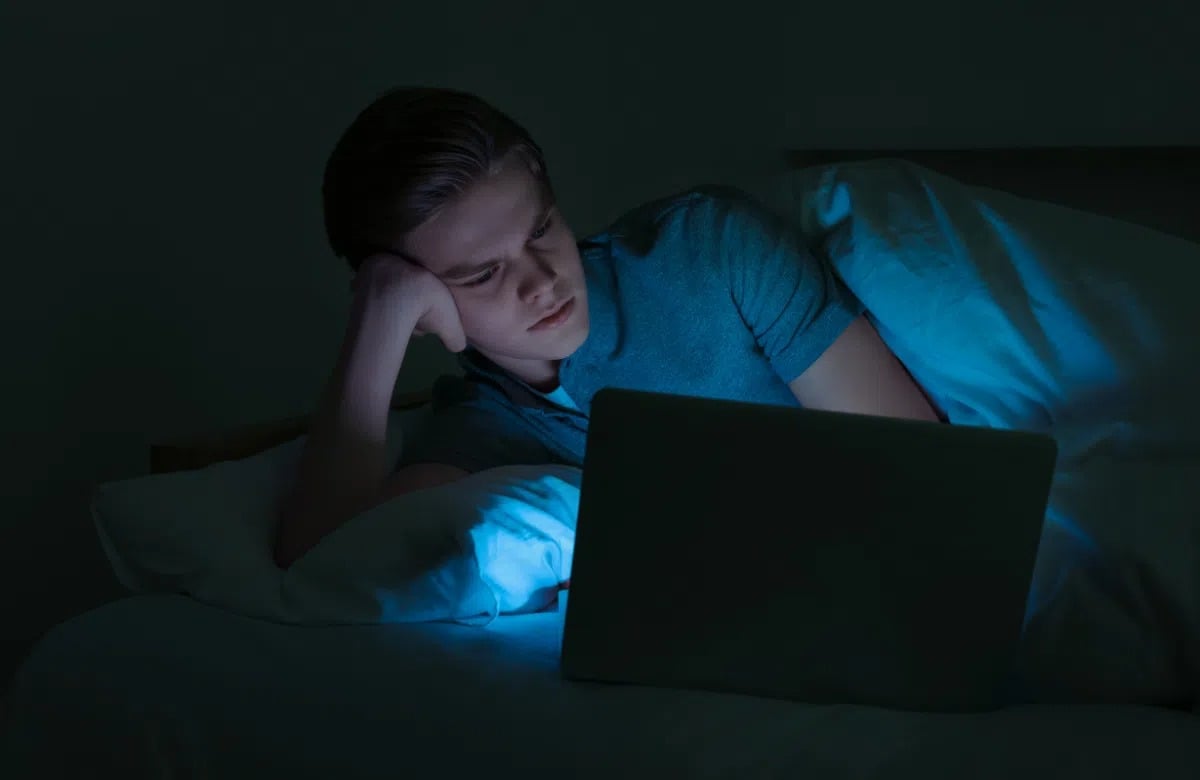On June 3rd, Doctor Supharuek Wijaranayan, commonly known as “Doctor Oak,” the owner of the DoctorSixpack Facebook page, shared informative insights regarding the severe consequences of staying up late. His post garnered significant attention from the online community.
“You might think that staying up until 1-2 am is harmless as long as you make up for it by sleeping in. But if this becomes a long-term habit, over ten years, you increase your risk of high cholesterol, hypertension, stroke, and even cancer,” emphasized Doctor Oak.
Biological Clock Disruption: Your Health Eroding Day by Day
According to Doctor Oak, sleeping after midnight not only leads to sleep deprivation but also severely disrupts your biological clock, resulting in a cascade of issues:
– Decreased melatonin production, a vital hormone for bodily repair and regeneration.
– Increased abdominal fat accumulation, especially around the waist.
– Weakened immune system, making you more susceptible to illnesses.
– Neurological impacts: reduced concentration, memory issues, and increased irritability.
Catching Up on Sleep the Next Morning: Insufficient for Complete Recovery
Some believe that as long as they get their eight hours of sleep, regardless of the timing, their body will recover. However, Doctor Oak refutes this notion, explaining that this is a misconception.
“The body truly repairs itself between 10 pm and 2 am. Sleeping outside this window hinders complete recovery for your nervous and immune systems. Your liver also functions less efficiently, impacting the detoxification process.”
Additionally, late-night eating and sleeping habits can lead to gastric reflux and a feeling of fullness in the stomach, symptoms that are becoming increasingly common among young people.
The Decade-Long Toll: Chronic Illnesses Lurking in the Shadows
If staying up late becomes a persistent habit over an extended period, particularly a decade or more, the likelihood of developing the following chronic conditions increases significantly:
– Hypertension
– Type 2 Diabetes
– Cardiovascular diseases
– Memory impairment
– Female infertility
– Early-onset osteoporosis

Doctor Oak’s 4 Simple Steps to Improve Your Sleep
Reduce Blue Light Exposure:
– Turn off electronic devices at least one hour before bedtime.
– Utilize night modes such as Night Shift or Eye Comfort to reduce blue light emissions.
– Wear blue light filtering glasses when working at night.
Gradually Adjust Your Bedtime:
– Move your bedtime earlier by 15 minutes each day until you reach your desired sleep schedule.
Create a Relaxing Environment:
– Use lavender essential oil to promote relaxation.
– Listen to binaural beats or brainwave entertainment to naturally induce sleep.
Practice the 4-7-8 Breathing Technique:
– Inhale through your nose for a count of four.
– Hold your breath for a count of seven.
– Exhale slowly through your mouth for a count of eight.
– Repeat this cycle 3-4 times before sleeping to lower your heart rate and calm your mind.
Nutritional Support for Deeper Sleep, Especially for Those Over 35
According to Doctor Oak, from the age of 35 onwards, the body produces less melatonin, which is why middle-aged individuals often experience sleep difficulties. He recommends the following supplements to support restful sleep:
– Magnesium Glycinate: Promotes muscle relaxation and reduces tension.
– Ashwagandha: Reduces the stress hormone cortisol.
– Melatonin: Aids in resetting the biological clock.
– L-Theanine: Found in green tea, it calms brain activity.
– 5-HTP: Boosts serotonin production, which is a precursor to melatonin.
The Silent Cancer Risk: The Dangers of Chronic Sleep Deprivation
Numerous medical studies have established a link between prolonged sleep deprivation and the risk of developing certain cancers, including breast, colorectal, and prostate cancers.
The primary reasons for this association are:
– Reduced melatonin levels, which normally inhibit the growth of cancer cells in the early stages.
– Exposure to blue light at night, which interrupts the natural production of melatonin.
– A weakened immune system, unable to effectively identify and eliminate abnormal cells.
5 Emergency “First-Aid” Steps for Your Skin After Those Late Nights During Tết
Introducing the 5-step emergency skincare routine that will transform your skin and boost your confidence this spring. Revitalize your complexion and embrace a radiant glow with these simple steps, ensuring your skin is ready for any social gathering. It’s time to unlock your skin’s potential and let your natural beauty shine through.



































